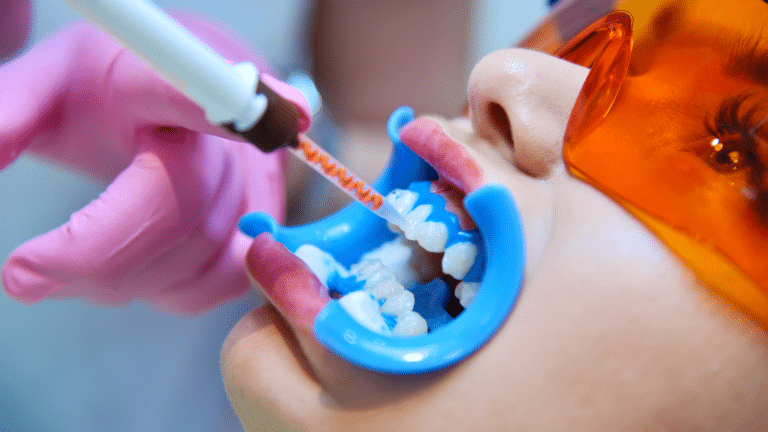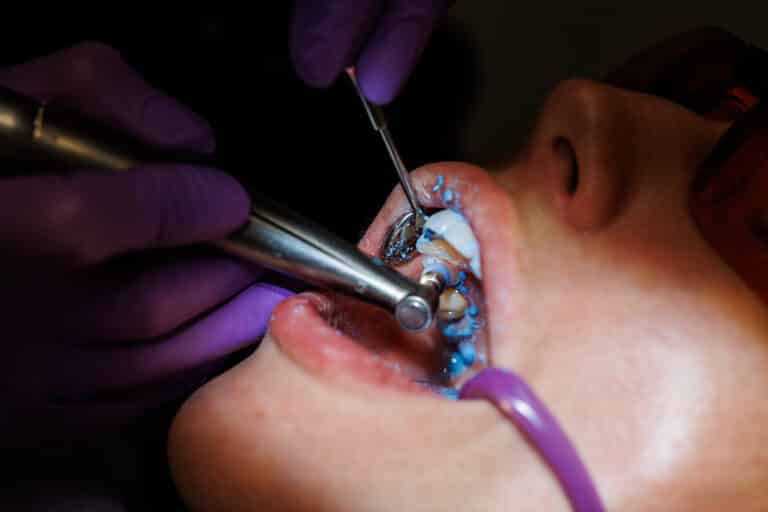As a parent, ensuring that your child’s oral health and wellbeing are in top shape is a priority. Among the most important aspects of their overall health is dental care. If you’re looking for the best start for your child’s oral health, pediatric dentistry is the key to laying a strong foundation. In this article, I’ll take you through everything you need to know about choosing a pediatric dentist in Singapore, why they’re so important, and how early dental care can benefit your child in the long run.
When Is the Best Time to Bring Your Child to a Pediatric Dentist?
It’s recommended to take your child for their first visit to a pediatric dentist by the time they reach their first birthday or when their first tooth appears—whichever comes first. This early visit helps to:
- Establish a dental care routine early on.
- Prevent dental issues that might arise in the future.
- Build a positive association with dental visits.
Why a Pediatric Dentist is Important
Pediatric dentists are well-versed in caring for young smiles. Their approach is tailored to support the dental health of children from infancy through their early years. Here’s why choosing a pediatric dentist can

make a positive difference:
- Skilled in Child-Specific Needs: From teething troubles and cavity prevention to guiding the transition from baby teeth to adult teeth, pediatric dentists are highly experienced in managing the unique dental needs of growing children.
- Gentle and Kid-Friendly: Dental visits can be daunting for little ones. Pediatric dentists are great at creating a welcoming and fun environment to help your child feel safe and relaxed during each appointment.
- Prevention and Early Detection: A big part of children’s dental care is spotting issues before they become bigger problems. Regular dental check-ups help identify signs of tooth decay, misalignment, or early gum disease early on—keeping your child’s smile healthy from the start.
Why It’s Crucial for a Child to Seek a Pediatric Dentist Early
Visiting a pediatric dentist from an early age is vital for setting the stage for a lifetime of good oral health. Early dental visits help your child:
- Prevent Future Issues: Many dental problems can be avoided with early intervention. This includes issues like early decay, misaligned teeth, and bite problems.
- Minimise Dental Anxiety: Children who visit the dentist early on are less likely to develop fear or anxiety about dental visits later in life.
Why Regular Dental Check-ups Are Important from Infancy to Adulthood
Regular dental check-ups are essential at every stage of life. From infancy to adulthood, each stage has specific dental needs that a dentist can monitor and address. Here’s a look at why regular dental visits are crucial throughout the various stages:

Age Group |
Importance of Regular Dental Check-ups |
Regular Dental Check-ups for Infancy (0-2 years) |
– Early detection of teething problems. – Development of healthy oral hygiene routines. |
Regular Dental Check-ups for Toddler (3-5 years) |
– Monitoring eruption of first teeth. – Preventing cavities and addressing thumb-sucking or other habits. |
Regular Dental Check-ups for Childhood (6-12 years) |
– Ensuring proper alignment of emerging permanent teeth. – Early treatment for orthodontic needs. |
Regular Dental Check-ups for Adolescence (13-18 years) |
– Evaluating the need for braces or other corrective treatments. – Preventing gum disease and cavities as their diet changes. |
Regular Dental Check-ups for Adulthood (18+ years) |
– Maintaining a healthy smile, preventing gum disease, and treating oral issues early to avoid complications later in life. |
Common Dental Issues in Children & Pediatric Dentist Advice
Even though baby teeth eventually fall out, they serve a critical role in your child’s overall health and development. Here’s a table outlining some of the most common dental issues in children that pediatric dentists can address:
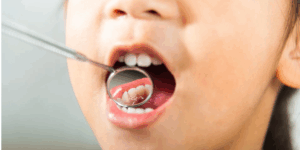
Dental Issue |
Description |
Pediatric Dentist Advice |
|---|---|---|
Teething Pain |
Discomfort as baby teeth emerge, leading to drooling and fussiness. | Use teething rings, massage gums, and offer cold washcloths. Consult a dentist if pain persists. |
Tooth Decay (Cavities) |
Cavities form due to sugary foods or poor oral hygiene. | Brush teeth twice daily, limit sugary snacks, and schedule regular check-ups. |
Thumb-Sucking and Pacifier Use |
Extended use can affect teeth alignment. | Encourage breaking the habit with positive reinforcement and seek professional guidance if necessary. |
Misaligned Teeth/Bite Problems |
Crooked teeth or bite issues as permanent teeth come in. | Early orthodontic evaluations can help determine if braces or corrective treatments are needed. |
Gingivitis (Gum Disease) |
Swollen, red, bleeding gums due to poor oral hygiene. | Teach proper brushing and flossing habits and visit the dentist regularly for cleanings. |
Baby Bottle Tooth Decay |
Decay caused by sugary liquids staying on teeth, especially at bedtime. | Avoid bottles with sugary liquids at bedtime and clean gums after feeding. |
Developing Baby Teeth and Gums
From birth to age three, your baby’s gums and teeth undergo important development stages. Here’s a brief overview of what you can expect:
- Baby Gums: Babies are born with soft, smooth gums that will gradually begin to develop as their teeth start to push through. Keeping their gums clean by wiping with a soft, damp cloth after feeding helps promote healthy oral hygiene.
- Baby Teeth Eruption: Most babies begin to sprout their first teeth around six months of age, with the process continuing until all 20 baby teeth have emerged by age three. These teeth play a crucial role in helping children chew food, speak clearly, and hold space for permanent teeth.
Teething Babies: When do babies start teething?
Most babies begin teething between 4 to 7 months of age, although some may start a little earlier or later. This is when their first baby teeth—typically the lower front ones—begin to emerge through the gums. Teething can lead to fussiness, drooling, and an urge to chew on objects. Gently massaging the gums with a clean finger or offering a chilled teething toy can help soothe the discomfort.
When to See a Pediatric Dentist
While teething is a normal process, there are some situations where you should contact a pediatric dentist:
- Signs of Infection: If the gums appear infected or there’s an unusual amount of swelling, it’s important to see a dentist.
- Persistent Pain: If your baby is experiencing extreme discomfort or refusing to feed for an extended period, seeking professional help is advisable.
- Teething Issues Not Resolved: If the teeth aren’t emerging properly, or if there are significant gaps or misalignments, a pediatric dentist can assess the situation.
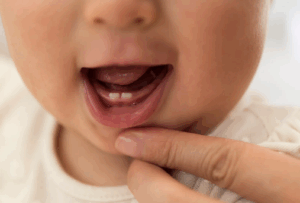
Common Baby Teething Symptoms
- Increased Drooling: Excessive drool can be a sign that your baby’s teeth are pushing through.
- Irritability: As the teeth break through the gums, babies often become fussy due to discomfort.
- Chewing on Objects: Babies love to chew on their toys or fingers to relieve the pressure from their gums.
- Swollen Gums: You may notice redness or swelling in the areas where teeth are erupting.
- Refusing to Feed: Teething pain can make sucking painful, leading your baby to refuse breastfeeding or bottle feeding.
How to Help Soothe Baby Teething Pain
Method |
Description |
|---|---|
Teething Rings and Toys |
Offer a teething ring or toy made of baby-safe materials. Cool ones in the fridge to numb the gums. |
Cold Washcloths |
Chill a clean washcloth in the fridge and let your baby chew on it. The cold texture helps soothe gums. |
Gum Massage |
Gently massage your baby’s gums with a clean finger to relieve pressure and discomfort. |
Teething Biscuits |
Once your baby is eating solids, offer teething biscuits or snacks that are safe for them to chew on. |
Over-the-Counter Pain Relief |
Consult your pediatrician about using infant-safe pain relief like acetaminophen or ibuprofen for severe discomfort. |
Cuddles and Comfort |
Provide extra cuddles and reassurance to help your baby feel safe and comforted during teething pain. |
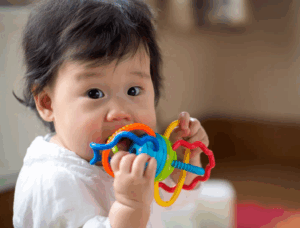
Give Your Child the Best Start for a Lifetime of Smiles!
Start your child’s dental journey today by scheduling an appointment at WeSmile Dental, where we provide WeSmile Essentials at affordable prices to ensure your child receives high-quality dental care tailored to their needs. We make every visit to the dentist a positive experience for both you and your child.
Although our dentists are not exclusively focused on paediatric dentistry, they are experienced and able to see and care for children, ensuring they feel comfortable and well looked after during their visit.
Don’t wait for problems to arise. Book an appointment today and give your child the healthy smile they deserve!

